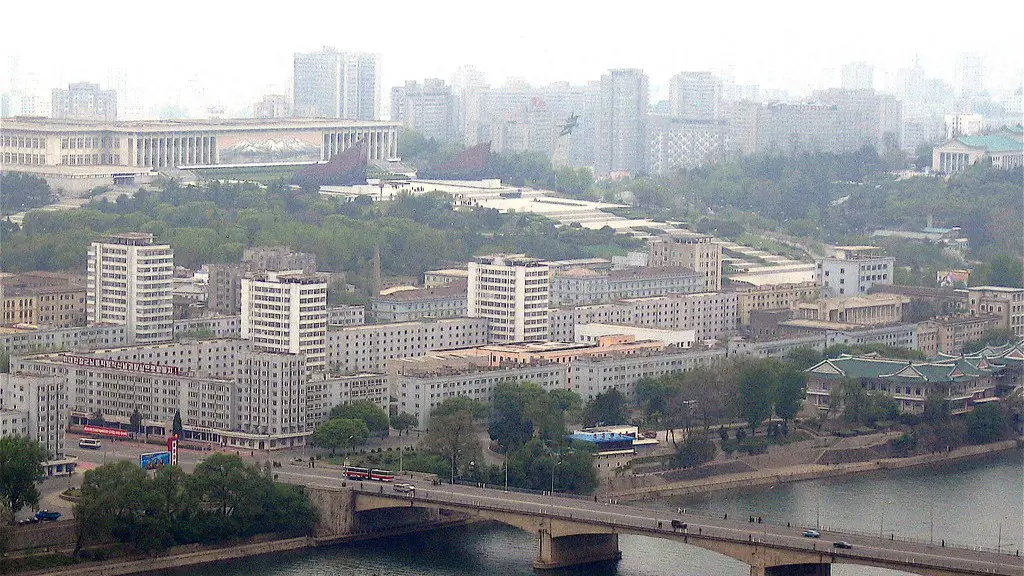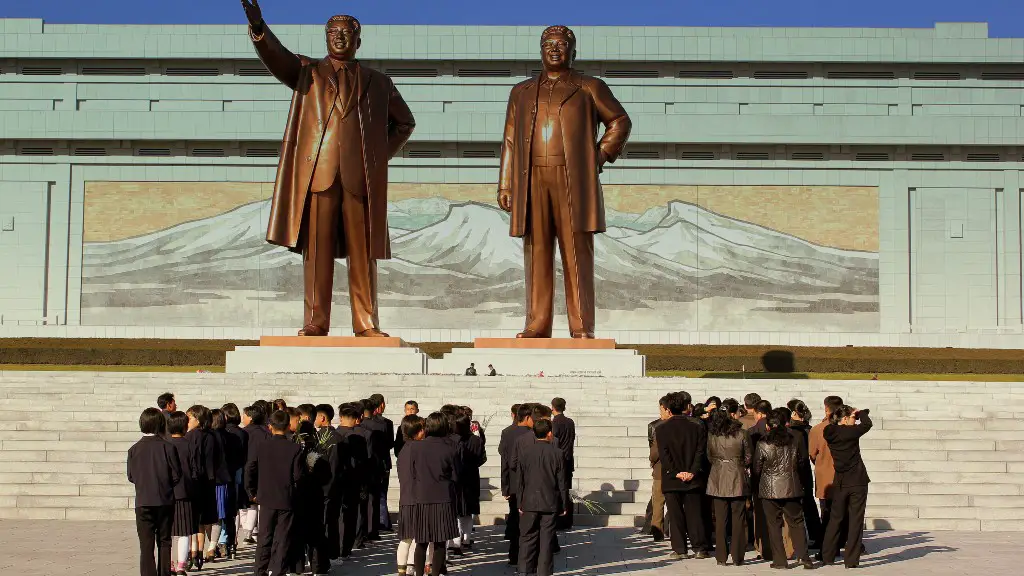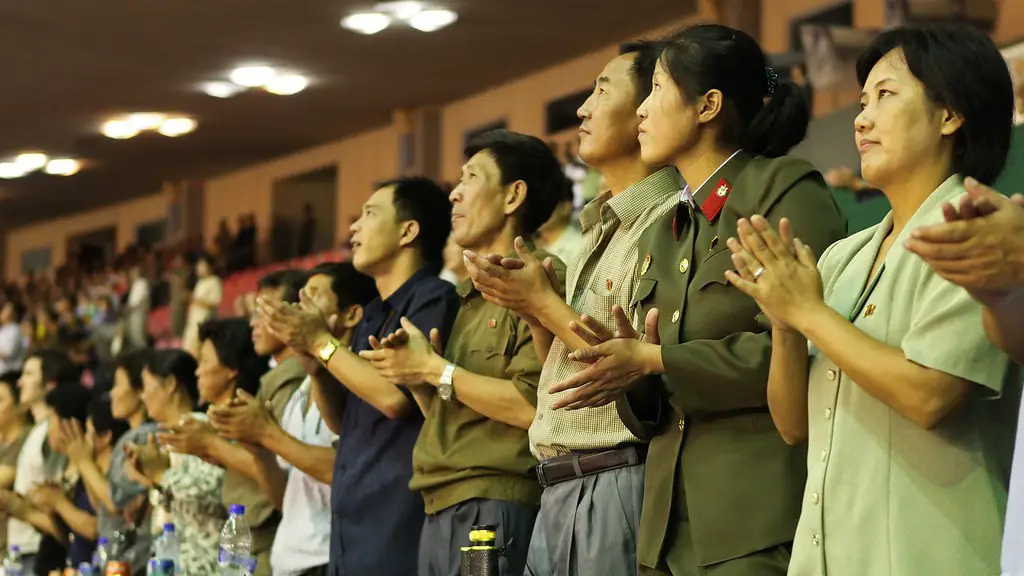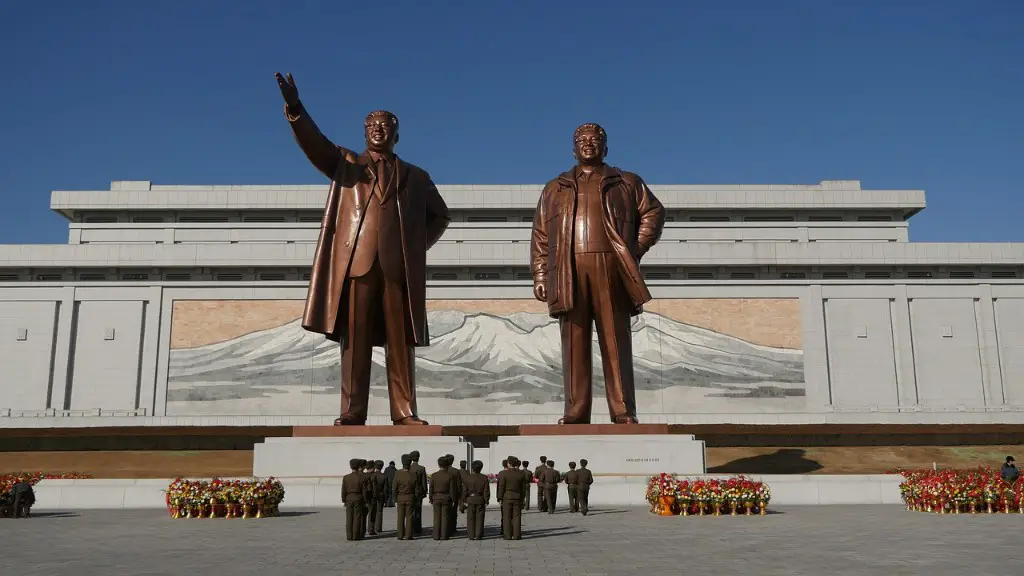The threat from North Korea has been a long-standing issue. Over the last several decades, North Korea has consistently sought to expand its nuclear stockpile and develop missiles to launch onto other countries. Recently, these threats have taken on an even greater urgency as the North Korean regime has been actively advancing its nuclear ambitions.
What has made North Korea’s actions so concerning is the unpredictability of the regime. North Korean leader Kim Jong Un has been largely unpredictable in his behavior, often making seemingly random decisions without considering the consequences. This has led to a tense atmosphere between North Korea and the United States, as well as other nations, as the potential for sudden actions by Kim Jong Un with devastating consequences is ever-present.
But why is North Korea threatening the United States in particular? To a large extent, the tension between North Korea and the U.S. is due to the longer history of animosity between the two countries. The U.S. has long been viewed as a major threat by North Korean leaders and the country’s isolationist policies have made it increasingly hostile towards the U.S. and other western nations.
Another factor behind North Korea’s hostility towards the U.S. is the country’s goal of becoming a nuclear power. North Korea has long sought to develop its own nuclear arsenal, and it has sought to achieve this goal through its actions in recent years. It is likely that North Korea feels that by demonstrating a more aggressive stance towards the U.S., it will be more likely to achieve this goal.
The U.S. has attempted to take a more diplomatic approach towards North Korea over the last several years, but it has not been able to reach a long-term solution. The Trump administration has attempted to get North Korea to denuclearize, but this has resulted in a stalemate rather than a resolution. The stalemate has further exacerbated the tensions between the two countries, leading to further threats and posturing.
The situation between North Korea and the United States is a delicate one, and it is uncertain how it will resolve in the future. It is clear, though, that North Korea’s threats must be taken seriously, as they could have devastating consequences. The U.S. must continue to take a diplomatic approach while maintaining a firm stance in order to protect its citizens and maintain peace in the region.
Influence of Sanctions
In the face of these threats, the United States has imposed economic sanctions on North Korea in order to further pressure the government to denuclearise. Although the effectiveness of these sanctions is hotly debated, the consensus is that these economic measures are unlikely to bring about a complete resolution any time soon. While the U.S. and other countries have ratcheted up the sanctions, North Korea has continued to advance its nuclear and ballistic missile programmes.
It is unclear how the sanctions will impact North Korea’s economic situation and its ability to finance its nuclear programme, but the measures are unlikely to provide the kind of resolution needed to bring an end to the conflict. Sanctions could also have undesirable consequences: North Korea could become further isolated, leading to broader issues of human rights, while the population could suffer economically due to a lack of access to international markets.
China’s Involvement
China is another factor to consider when thinking about the North Korea situation. As North Korea’s closest ally and trading partner, China has leverage over the country that other countries do not. China has often sought to mediate between North Korea and the United States, offering its own diplomatic solutions. The Chinese government has been vocal in its attempts to defuse tensions between the two countries, though the impact of its efforts has been limited at best.
China has also had a hand in the sanctions placed on North Korea, though it has sometimes taken a different approach to enforcement. While the U.S. and other countries have sought to cut off all economic ties with North Korea, China has often sought to limit the effect of the sanctions rather than outright banning trade and investment with the country. This distinction has complicated the enforcement of the sanctions, as some countries have alleged that Chinese companies are still enabling North Korean trade.
Ultimately, China’s role in the North Korean conflict is uncertain. While the country could help to reduce the tension and achieve a resolution, its own interests in the region complicate matters. It is clear that China is watching the situation closely, and it could be a key player in finding a peaceful solution.
Options for The US
Given the existing tensions and North Korea’s threatening behavior, the United States must consider its options. While military action is one possible outcome, the US is unlikely to take such a drastic measure. President Trump has frequently talked of a peaceful resolution to the conflict, though the exact details of a diplomatic approach remain unknown. Another option would be for the US to work with China and other regional powers to increase pressure on North Korea.
The US could also consider offering incentives to North Korea. For example, the US could offer economic aid or other rewards to the country in exchange for the complete denuclearisation of the Korean peninsula. The US has used this tactic in the past, though it remains to be seen how effective it could be in this situation.
Ultimately, the US must consider all of its options and weigh the risks and rewards before taking any kind of action. It is clear, though, that the situation must be managed carefully in order to avoid a disastrous outcome.
A Possible Way Forward
Despite the current tensions and uncertainty, there may be a path forward. In recent months, there have been small signs of progress, with North Korea optimistic about a potential dialogue with the US. Talks have been proposed in both the US and North Korea, though it remains to be seen if these will lead to any real progress.
The possibility for progress is further complicated by recent developments in the region, such as the death of a South Korean official in North Korea, but there are still some signs of hope. Both countries have expressed a desire for a peaceful resolution, and the US and North Korean leaders have met multiple times in recent years.
The US must continue to pursue diplomatic efforts while maintaining a firm stance. This is likely the best way forward, as military action could have catastrophic consequences. In the meantime, the US must remain vigilant and prepared to respond to any potential actions by North Korea.
Potential Impact on The Global Stage
The threat from North Korea has wider implications for the global stage. In particular, the volatility of the situation has raised concerns about the long-term security of the Korean peninsula and the region as a whole. The danger of a nuclear conflict could have a devastating impact not just on the two countries involved but also on the rest of the world. As such, the international community must do all it can to ensure that a conflict does not arise.
The situation has also sparked a debate about the roles the U.S. and other countries should play. The US has traditionally been viewed as the leader in the region in terms of security and diplomacy, but the current situation has led to criticism of the US’s role. Other countries, particularly China, have sought to be more involved in the situation, leading some to question whether the US has the right approach.
The situation in North Korea is a complex one, and it will take concerted effort by the US and other countries to possibly bring about a peaceful resolution. In the meantime, though, it is important to remain vigilant against threats from the North Korean regime, as the consequences of any miscalculation could be devastating.
International Cooperation
In order to ensure a peaceful resolution, international cooperation is key. Although the US is leading the efforts, other countries must be involved in the process. Over the past few years, countries like China, Japan, and South Korea have sought to be more involved, though it is unclear how effective these efforts have been.
The UN has also played an important role in the situation. The UN has imposed sanctions on North Korea and has sought to mediate dialogue between the US and North Korea. The UN has also taken steps to monitor North Korea’s nuclear program, though this has not led to any major breakthroughs.
Ultimately, international cooperation is essential if the conflict with North Korea is to be resolved peacefully. The US must continue to seek diplomatic solutions while allowing other countries to take part in the process. It is only through such efforts that a lasting peace can be achieved.
Conclusion
The threat from North Korea remains a major concern for the United States and the wider international community. Although the situation has stabilized in recent months, the tensions between the US and North Korea remain. If a peaceful resolution is to be achieved, it will require concerted effort from the US and other countries. In the meantime, the US must remain vigilant and seek diplomatic solutions to the crisis.





